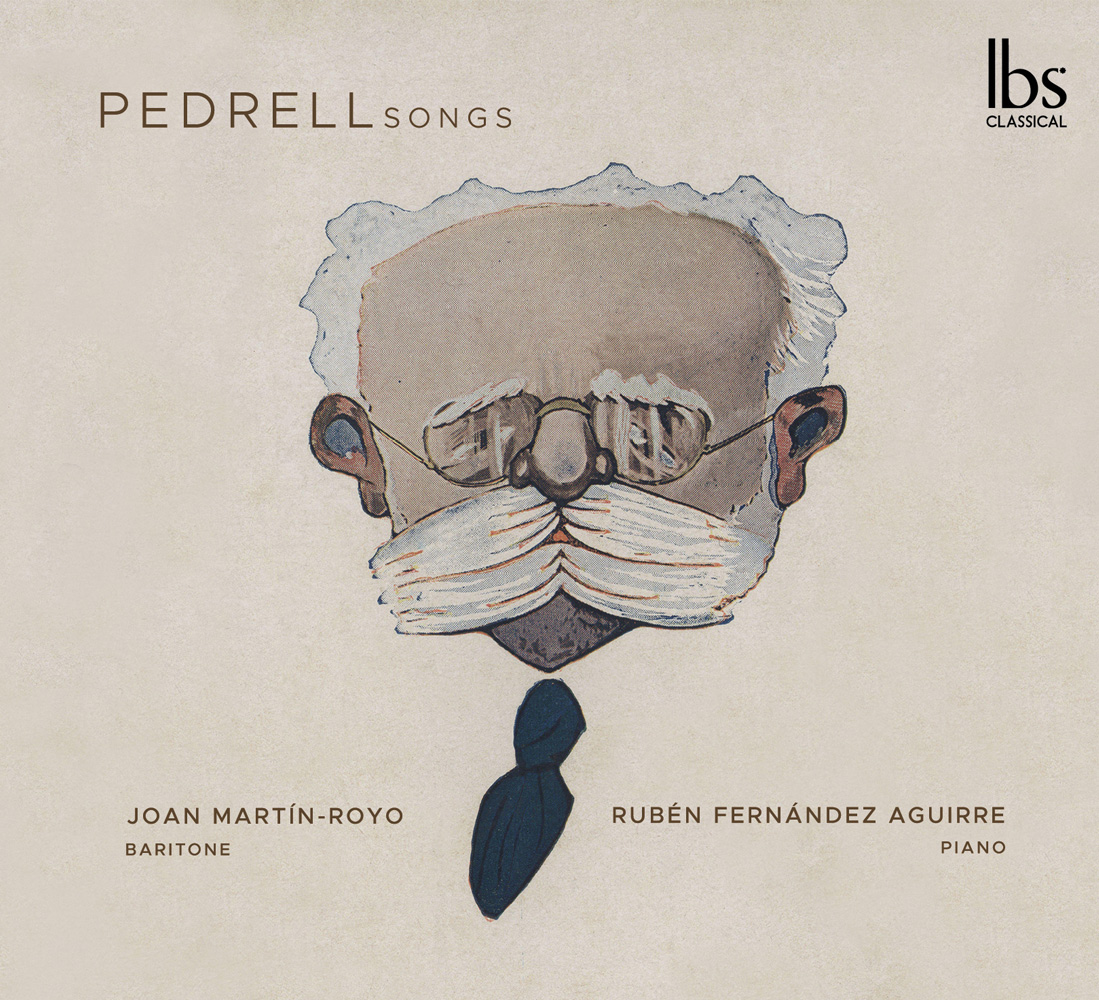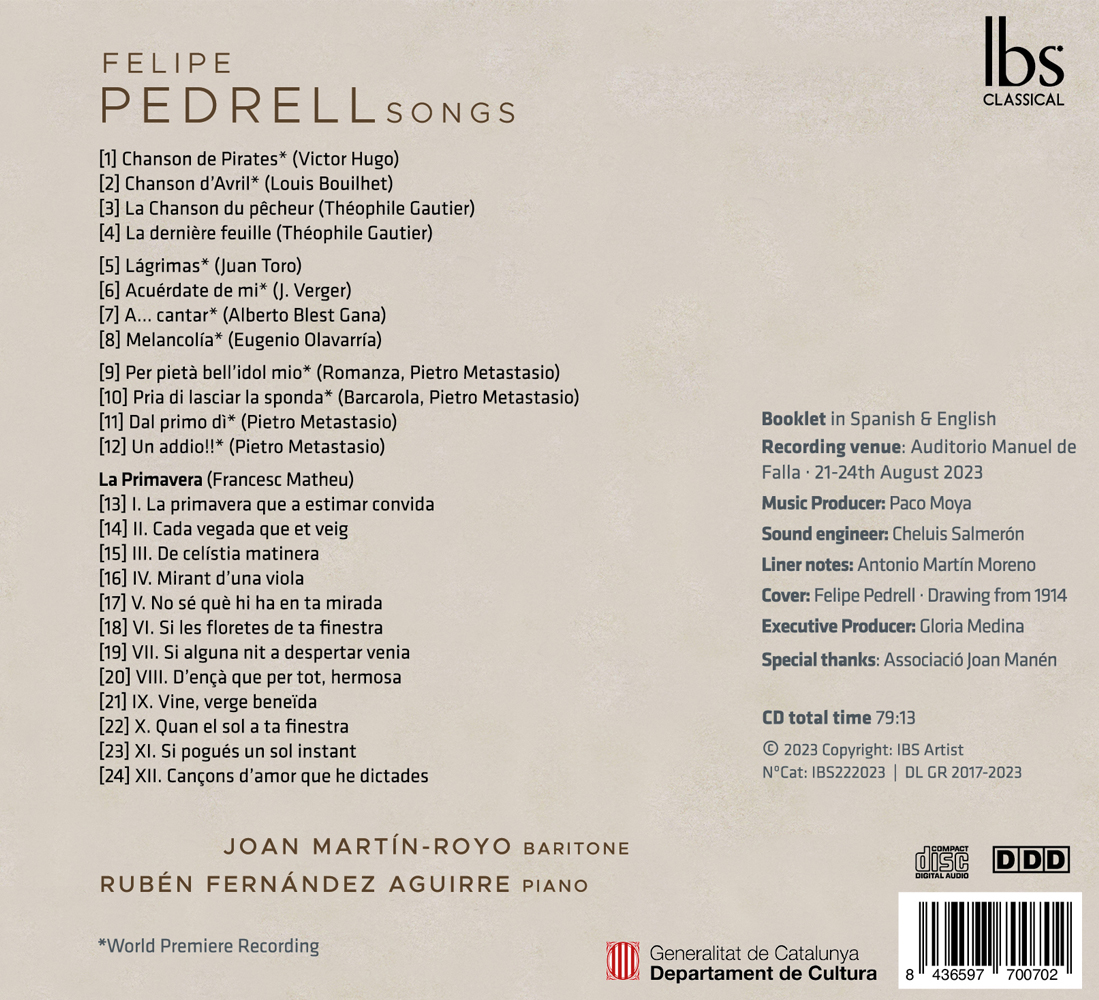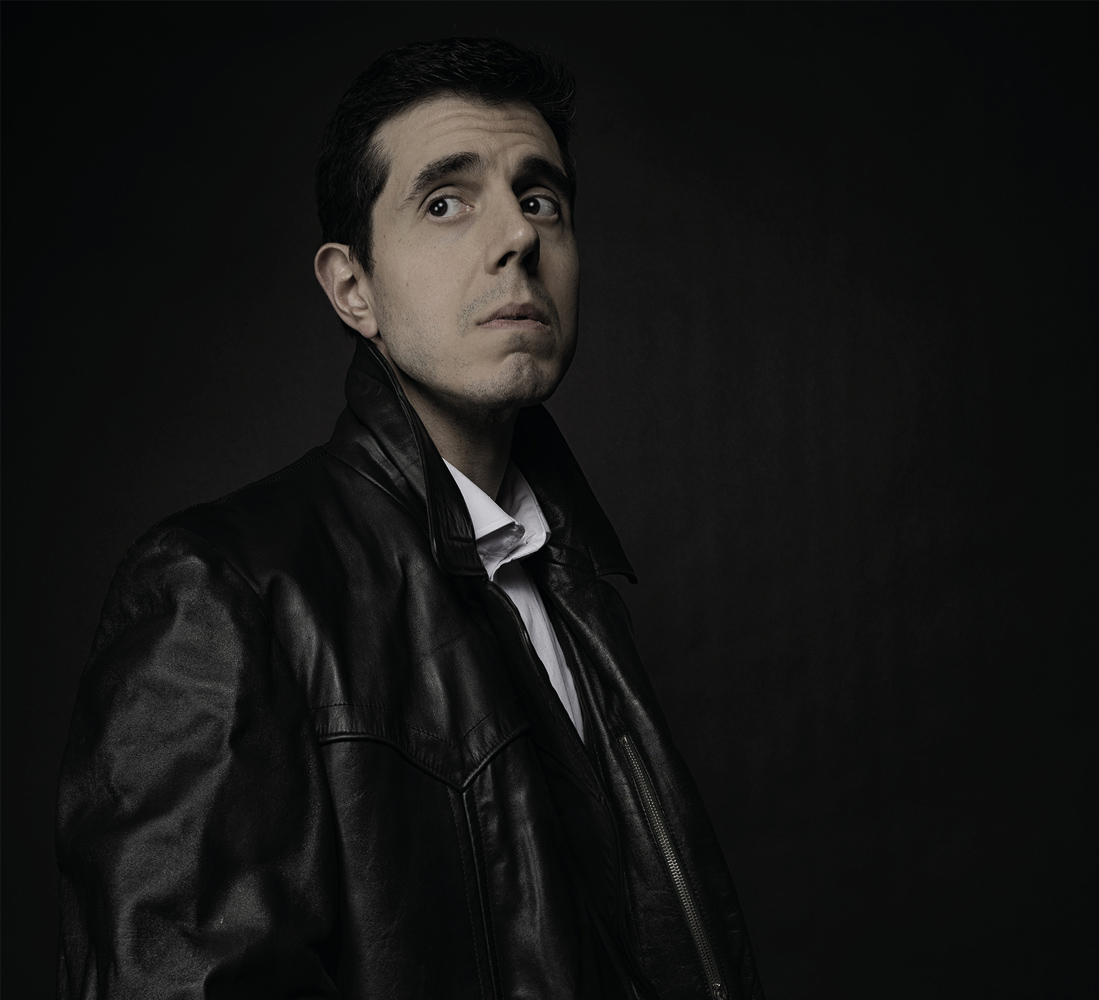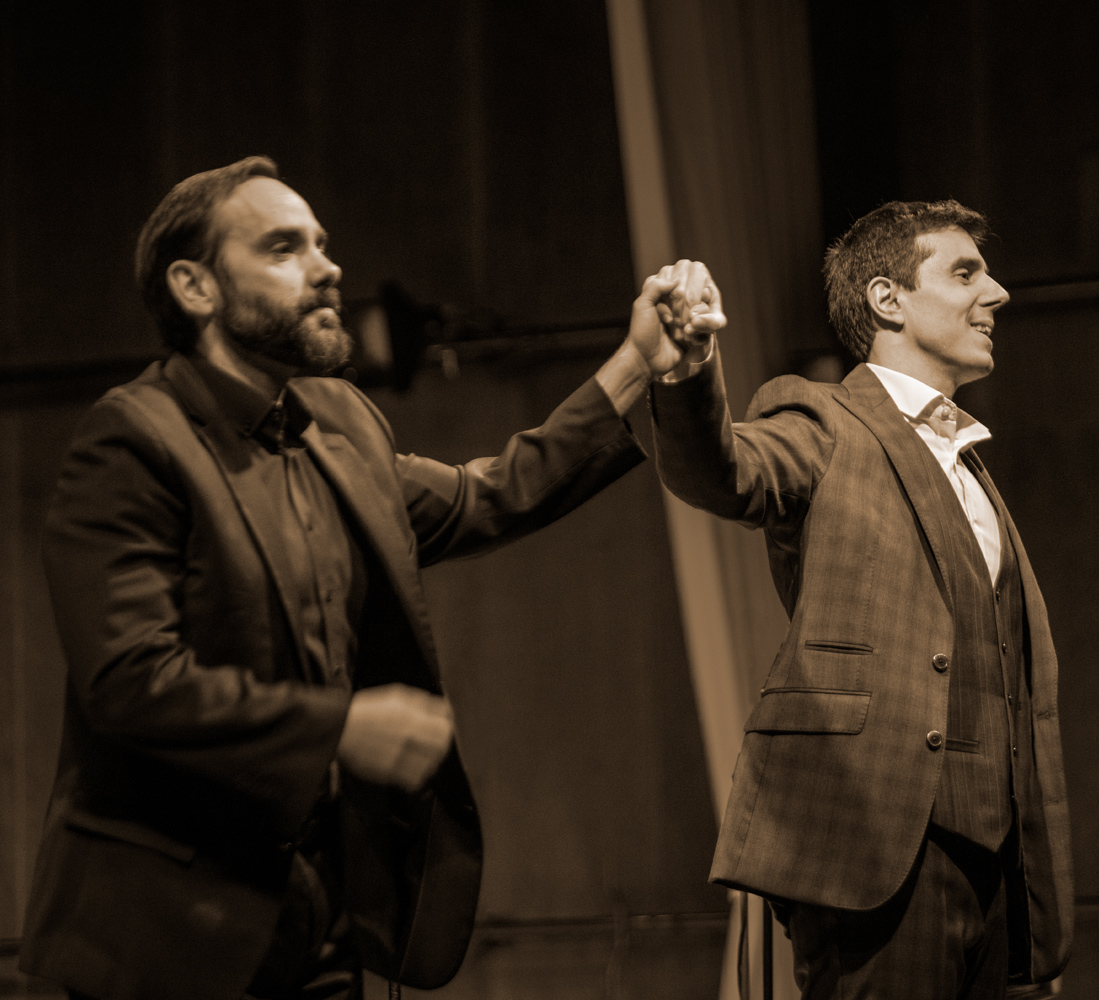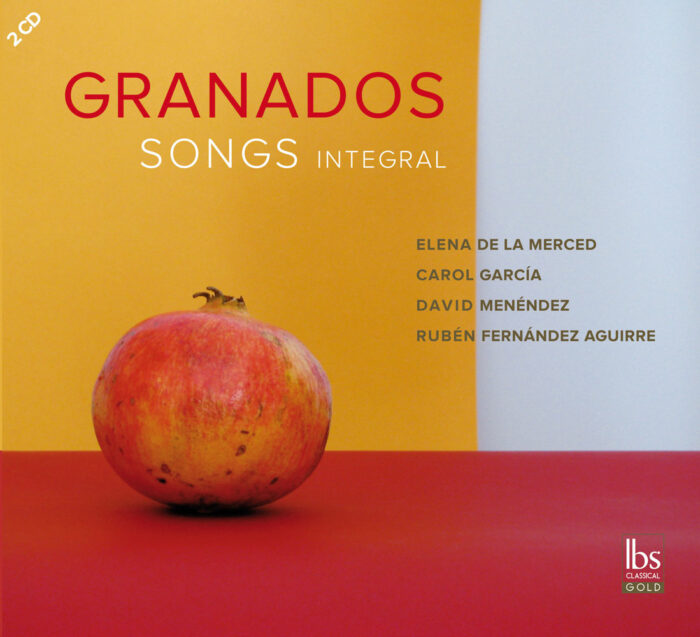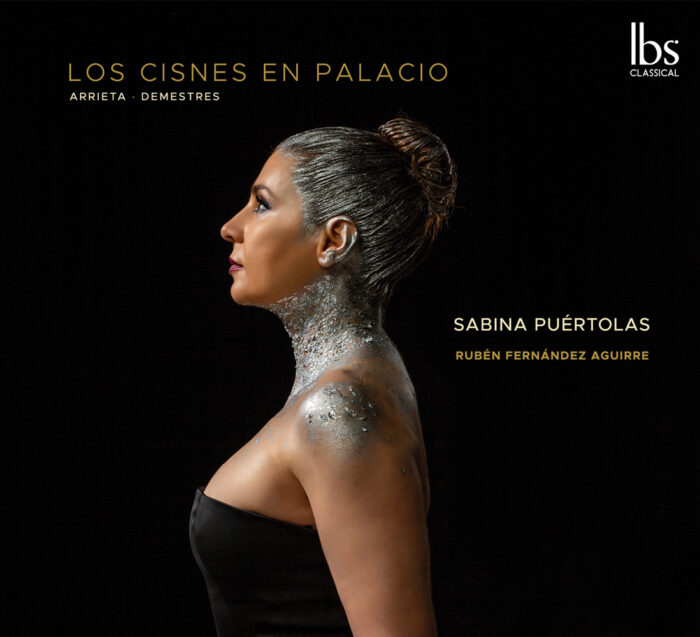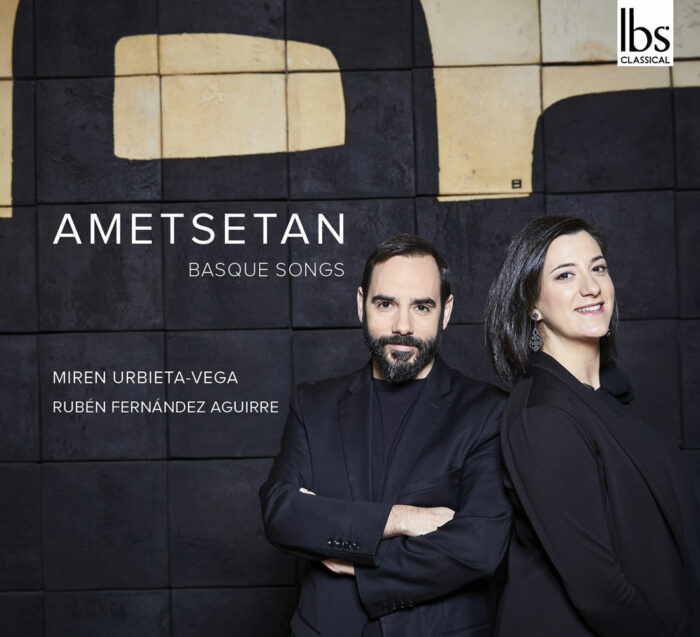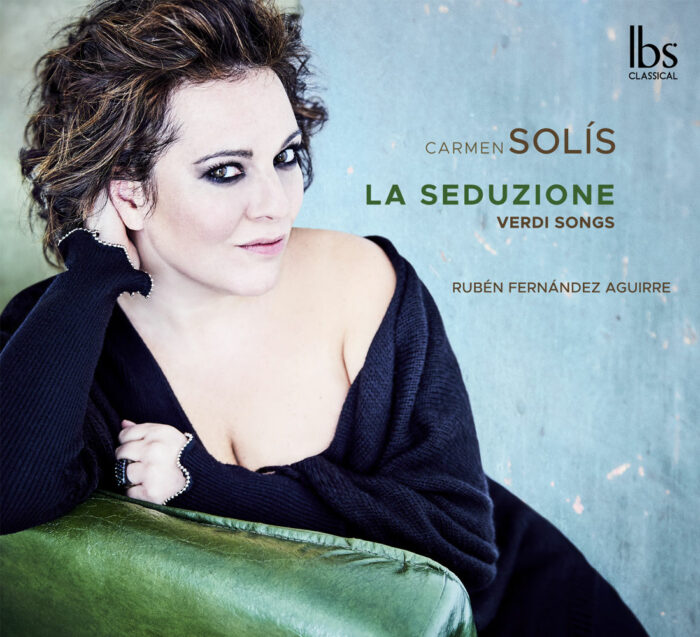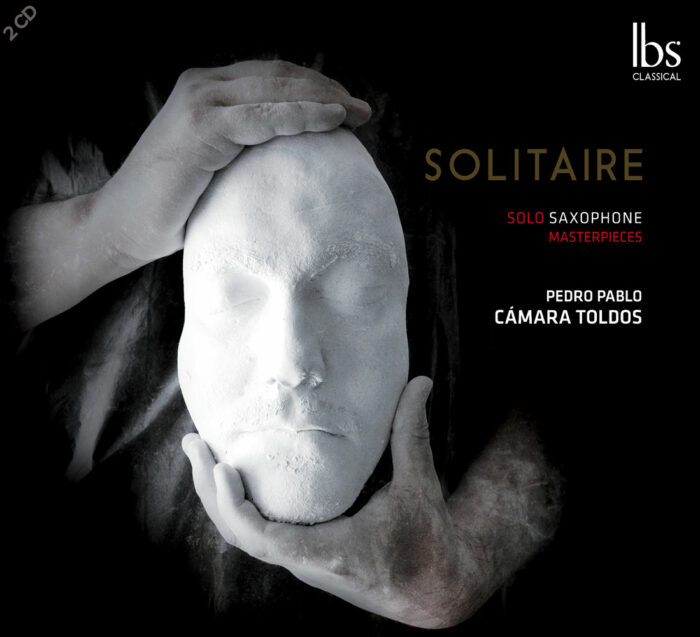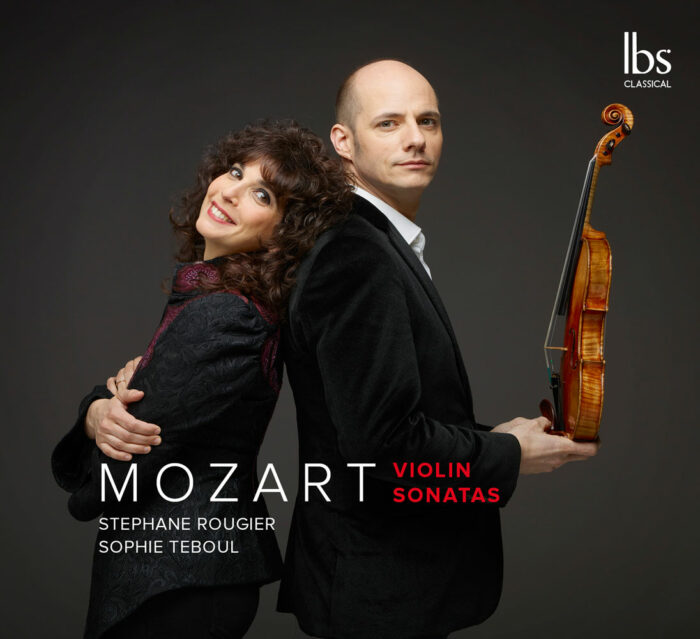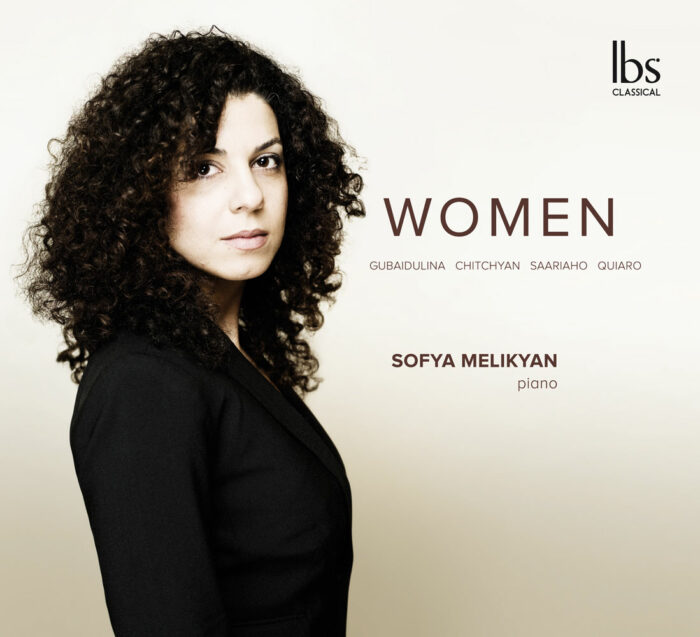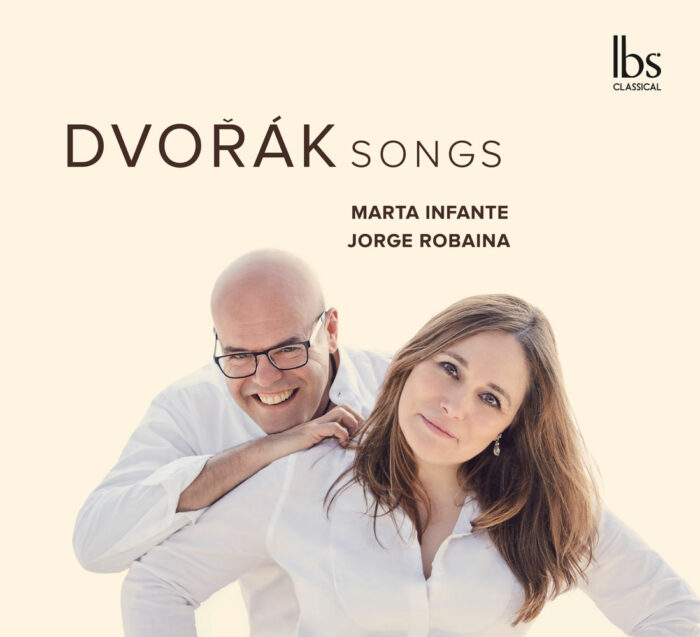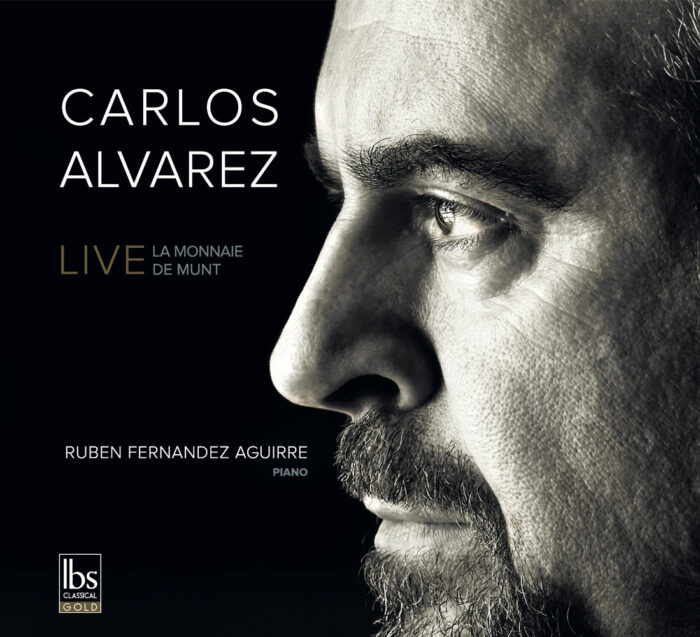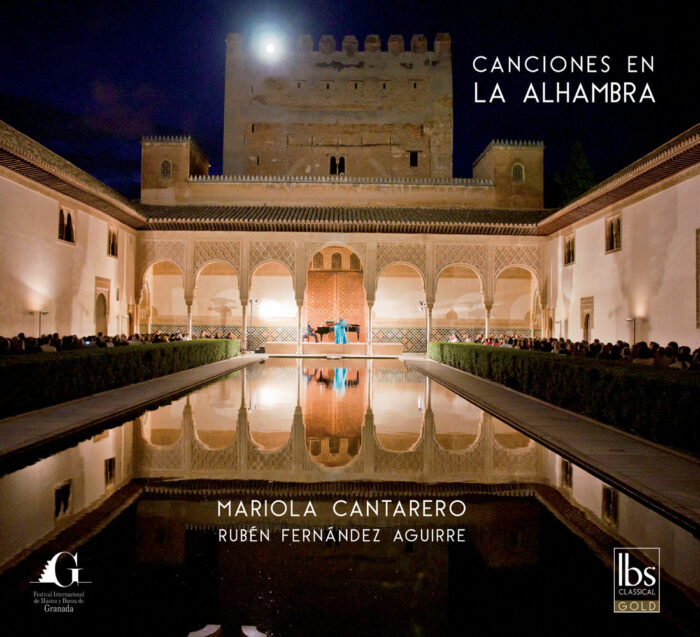Pedrell Songs
14,95€
On the 20th of August 2022, the centenary of the passing of Felipe Pedrell transpired—an occasion marking the solemn remembrance of the esteemed progenitor of Spanish musical nationalism. The catalogue of musical compositions by Pedrell, established in 1977, comprises a total of 231 titles. In the catalogue of his works, there is a notable emphasis on his interest in art song with accompaniment, serving as the foundation for his musical creations and a key element in his nationalist ideology. His initial compositions for voice and piano date back to 1857, where he endeavours to distance himself from the prevailing trends in Spanish music during his era and align with European musical styles. In this CD, performed by Joan Martín-Royo and Rubén Fernández Aguirre, we can appreciate the enormous quality of Pedrell’s compositions, marked by enormous contrast, the voice and piano accompaniment are superbly treated, and some songs exhibit exotic influences (Arab), at times mysterious and at others romantic. Undoubtedly, a work worthy of being among the most important lyrical repertoire.

14,95€
The CD Songs
In the catalogue of his works, there is a notable emphasis on his interest in art song with accompaniment, serving as the foundation for his musical creations and a key element in his nationalist ideology. His initial compositions for voice and piano date back to 1857, where he endeavours to distance himself from the prevailing trends in Spanish music during his era and align with European musical styles. He achieves this by utilizing texts from Germanic poets associated with the early Romantic period, such as Heinrich Heine (1797-1856) and Ludwig Uhland (1787-1862), while also drawing influence from the Italian operatic tradition. Expanding his list of authors, he incorporates the works of his contemporaries from France, Catalonia, and the rest of Spain, being the first Spaniard to title his collections of songs and melodies with the German word Lieder, starting from 1871.
La Chanson de Pirates (The Pirates Song) (1876), belongs to Orientales, a collection of twelve melodies for voice and piano, featuring poetry by Victor Hugo. In an Allegro vivace tempo, set against a rhythmic piano accompaniment, the lyrics narrate the adventures of pirates aboard their galley, starting from the shores of Morocco.
Chanson d’Avril (April song) (1879), with lyrics by Louis Bouilhet (1822-1869), a friend of Flaubert, is part of Sixteen Lieder and was published by Alier in 1879. In C major, the dialogue between the voice and the piano in arpeggios depicts the restrained ardour of the lover and the blossoming of spring.
La Chanson du pêcheur (The fisherman’s song) is part of the cycle Consolations, 12 Melodies on poems by Théophile Gautier for voice and piano, featuring texts from La Comédie de la mort (The Comedy of Death) (1838) and from Poésies diverses (Various poems). In F minor, La Chanson du pêcheur expresses the sorrow of the fisherman for the death of his beloved. The piano mirrors the regular movement of the waves, reaching its climax at “que mon sort est amer” (that my fate is bitter), and concludes in the form of a lament with repeated notes and with a mordent on the piano, modulating to F major in search of hope.
La dernière feuille (The Last Leaf), part of the same cycle, is a poem dedicated to autumn, featuring a homophonic texture that underscores the syllables of the verse.
Lágrimas (Tears), a poem by Juan Toro, musically describes the tearing of the heart of one who believed to be loved. Published by Vidal and Roger in 1875.
Acuérdate de mi (Remember me), with lyrics by J. Verger, is one of the Dos Melodías (Two Melodies) for voice and piano composed in 1866, the other being titled Tu amor (Your love). Pedrell describes the sadness of bidding farewell to someone whom death awaits.
A… Cantar (Let’s sing), with lyrics by A. Blest Gana, belongs to the cycle Noches de España (Spanish nights), published by Vidal and Roger in 1871. Pedrell employs Spanish rhythms, mimicking the strumming of a guitar on the piano.
Melancolía (Melancholy) concludes this set of Spanish songs and serves as a melancholic ode to the loss of a beloved, simultaneously heart-wrenching and demanding due to its high register. It stands out as the most elaborated song, lasting almost eight minutes, rich in modulations, featuring chordal texture in the accompaniment, and showcasing pianistic writing that demonstrates Pedrell’s deep understanding of the instrument.
Per pietà, bell’idol mio (For mercy, my beautiful muse), a romance, is the first of the Italian-text songs presented here, all of them characterised by substantial musical development and based on poems by Pietro Metastasio. The rhythmic piano accompaniment guides the voice in this Italian-style love song, demanding both in its large interval jumps and the utilization of the high register.
Pria di lasciar la sponda (Before departing from the shore), a barcarole, possesses a distinctly Italian character, particularly in its rhythm, exuding a cheerful air reminiscent of a love song.
Un Addio! (A Farewell) is part of the cycle Ecos de Italia (Italian echoes), five melodies for voice and piano, op. 15, also based on texts by Metastasio. It could be mistaken for a composition by Verdi, Puccini, or any other Italian composer. Despite being in a major key, it carries a high level of drama, and the demanding use of the voice, with its wide vocal range, renders it a song worthy of inclusion in the most significant repertoire of singers.
Dal primo dì (Since the first day), part of the same cycle, features a beautiful piano introduction with harp-like arpeggios, setting the stage for this love song.
La Primavera (Spring)
After his collections of French songs composed in Paris, Pedrell turned his attention to Catalan poetry. Among the early Catalan cycles are the Lais (op. 96) from 1879 and La primavera from 1880, based on poems by Francesc Matheu (1851-1938). Pedrell abandoned the composition of lieder cycles at the end of that decade. These works exhibit musical beauty comparable to any of the most famous lieder cycles. Both in musicality and the poems themselves, the songs metaphorically describe love, reflected in everything that nature fills with beauty in spring.
From the bird’s song in the first song, La primavera que a estimar convida (The spring that incites love), to the sweetness of singing to the beloved “every time I see you” in Cada vegada que et veig (Every time I see you), and the comparison of love to the “skin of a violet” in Mirant d’una viola (As I gaze upon a violet), each of the twelve songs completes a unique metaphor. They are marked by enormous contrast, and all closely related to the text’s message. The voice and piano accompaniment are superbly treated, and some songs exhibit exotic influences (Arab), at times mysterious and at others romantic. Undoubtedly, a cycle worthy of being among the most important lyrical repertoire.
Antonio Martín Moreno
Joan Martín-Royo
JOAN MARTIN-ROYO, baritone Born in Barcelona, Joan Martín-Royo studied piano, violin, bassoon and composition at the Conservatori Superior de Música del Liceu and also gained a degree in History of Art from the University of Barcelona. He did his vocal studies with soprano Mercè Puntí and has also received masterclasses from Christa Ludwig, Elisabeth Söderström, Thomas Quasthoff and Lorraine Nubar. He also worked on vocal technique with bass-baritone Carlos Chausson and on vocal coaching with pianist Marco Evangelisti. At the present time he works on technique with Didier Laclau-Barrère and on acting and body language with Arnaud Décarsin. He has received awards at several prestigious singing contests including the Third Male Prize, the Mozart Prize and the Plácido Domingo Award at the 2003 Francisco Viñas Competition.
He was also Preisträger in the 2002 Sommerakademie at Salzburg’s Mozarteum (as best Lieder singer). His operatic repertoire focuses especially on Mozart and Rossini: Figaro in Le Nozze di Figaro (Liceu Barcelona / Champs-Elysées, Paris), Guglielmo in Così fan tutte (Palau de les Arts Reina Sofia, Valencia / Théâtre des Champs Elysées and Liceu Barcelona), Papageno in Die Zauberflöte (Liceu Barcelona / Ópera de Oviedo / Teatro Municipal, Santiago), Masetto in Don Giovanni (Opéra de Monte Carlo), Dandini in La Cenerentola (Glyndebourne), Lord Sidney in Il Viaggio a Reims (La Monnaie, Brussels), Macrobio in La Pietra del Paragone (Théâtre du Châtelet, Paris / Teatro Regio di Parma,) Figaro in Il barbiere di Siviglia (Théâtre des Champs-Elysées) and Don Parmenione in L’occasione fa il ladro (Teatre Lliure, Barcelona). Other roles include Rodomonte in Haydn’s Orlando Paladino (Châtelet, Paris), Colombo in Carnicer’s Cristoforo Colombo (Teatro de la Maestranza, Sevilla), Albert in Werther (Ópera de Las Palmas / Festival Mozart A Coruña), Lescaut in Manon (Liceu), Marcello in La Bohème (Komische Oper Berlin), Belcore in L’elisir d’amore (Liceu Barcelona / Opera di Roma), Ned Keene in Peter Grimes (Santiago, Chile), Don Quijote in De Falla’s El Retablo de Maese Pedro (Palais des Beaux-Arts, Brussels / Liceu Barcelona / Halle aux Grains, Toulouse / Palau de les Arts, Valencia / Auditori de Barcelona), Mr. Astley in Prokofiev’s The Gambler (Liceu Barcelona), Don Mariano in Chapí’s Curro Vargas (Teatro de la Zarzuela, Madrid) and Mercutio in Roméo et Juliette (Teatro Real, Madrid).
Mr. Martín-Royo is also very interested in performing Contemporary Opera; highlights include creating the roles of surrealist painter Salvador Dalí in Xavier Benguerel’s Yo, Dalí (Teatro de la Zarzuela, Madrid / Teatro Liceu, Barcelona), Walt Whitman in García Demestres’ WOW! (Festival Castell de Peralada, Girona), Pedrosa in Mariana en sombras by G. Demestres (Auditorio de Granada), Mercader in Salvador Brotons’ El mercader de somnis (Winterthur Auditorium, Barcelona)…
He has also sung the world première of García Demestres’ oratorio Contes, tirallongues, jocs i colors and the European première of Daniel Schnyder’s The revelation of St. John (both at the Auditori de Barcelona). On the concert platform he has enjoyed appearances with The Orchestra of the Age of Enlightenment, Al Ayre Español, La Grande Écurie et la Chambre du Roy, Ensemble Matheus, Orchestre du Théâtre du Capitole de Toulouse, National Orchestra of Spain, Symphony Orchestra of Barcelona and the Hungarian Radio Orchestra. Recent engagements include his US début singing Messiah with the National Symphony Orchestra / Rinaldo Alessandrini (at the Kennedy Center, Washington), Mendelssohn’s Die erste Walpurgisnacht in Mallorca / Víctor Pablo Pérez, Haydn’s Die Schöpfung with the Orchestra of Cannes Provence-Alpes-Côte d’Azure / Philippe Bender, Christus in Bach’s St Matthew Passion with Al Ayre Español/ Eduardo López Banzo, Pilatus and the bass arias in Bach’s St John Passion with Real Filarmonía de Galicia / Frans Brüggen and the Fauré’s Requiem at Festival de Músiques Religioses i del Món de Girona / John Rutter. He has also performed Bach’s Lutheran Masses (Concertgebouw Amsterdam), Mozart’s Requiem, Krönungs-Messe and Vesperae solennes de confessore (Palau de la Música, Barcelona / Salle Philarmonique de Liège), Brahms’ Ein Deutsches Requiem (Auditori de Girona), Wolf-Ferrari’s Talitha Kumi! (Auditorio Príncipe Felipe, Oviedo), Pablo Casals’ El Pessebre (Opéra de Montpellier / Auditori de Barcelona) and De Falla’s L’Atlàntida (National Auditorium, Madrid). A keen recitalist, Martín-Royo has collaborated with distinguished accompanists such as Helmut Deutsch, Dalton Baldwin, Norman Shetler, Roger Vignoles and Pierre Réach performing Schubert, Schumann, Wolf, Beethoven, Loewe, Mendelssohn, Ibert, Ravel, Duparc, Poulenc, Hahn, Montsalvatge and Guinjoan in the Schubertiades in Vilabertran and Barcelona, at the Leigthon House Museum (London), Grosser Saal and Wiener Saal (Mozarteum, Salzburg), Palau de la Música (Barcelona), Fundación Juan March (Madrid), Festival Piano Pic (France)…
He has recorded Ànima (a disc of opera arias with the Orquestra Simfònica del Gran Teatre del Liceu / Josep Vicent), García Demestres’s operas Mariana en sombras and Aprima’t en 3 dies and has been one of the fifteen Spanish singers invited to take part in the recording series of Antón García Abril’s complete set of Lieder and Melodies. His most remarkable DVD releases include La pietra del paragone (for Naïve) and the BBC’s cartoon production of Janácek’s The cunning little vixen (performing the role of the Forester under Kent Nagano in the Spanish and Catalan versions). His future plans include Papageno in Die Zauberflöte and Schaunard in La Bohème (Teatro Real, Madrid), Taddeo in L’Italiana in Algeri (Théâtre du Capitole, Toulouse), Figaro in Le nozze di Figaro (Ópera de Oviedo), Dandini in La Cenerentola (Santiago, Chile) and Albert in Werther (Liceu Barcelona).
Rubén Fernández Aguirre
Born in Barakaldo, in the province of Vizcaya, Spain, Rubén Fernández-Aguirre completed his solo piano studies in Vitoria with Albert Nieto before specialising in opera coaching and piano accompaniment in Vienna with David Lutz and in München with Donald Sulzen. He has also received the guidance of Félix Lavilla, Miguel Zanetti and Wolfram Rieger. A much sought-after recital accompanist, he regularly collaborates with Carlos Álvarez, Ainhoa Arteta, María Bayo, Gabriel Bermúdez, Mariola Cantarero, Elena de la Merced, Andeka Gorrotxategi, Nancy Fabiola Herrera, Ismael Jordi, José Antonio López, David Menéndez, María José Montiel, Carmen Romeu, José Luis Sola and Carmen Solís, and he has also worked alongside Celso Albelo, Yolanda Auyanet, Josep Bros, Measha Brueggergosman, Mariella Devia, Cristina Gallardo-Domâs, Carol García, Eglise Gutiérrez, Montserrat Martí, Isabel Rey, Christopher Robertson, Ofelia Sala, Ana María Sánchez, Leontina Vaduva and José Manuel Zapata. In these partnerships, he has performed at most of the Spanish festivals and theatres, as well as the major music centres around the world, including Vienna’s Musikverein, La Monnaie in Brussels, the Rossini Opera Festival in Pesaro, New York’s Avery Fisher Hall and Carnegie Hall, Montevideo’s Teatro Solís, and concert halls in Paris, Lyon, Bremen, Graz, Budapest, Damasco, Argel, Mexico City and Buenos Aires. Rubén has accompanied Masterclasses given by Teresa Berganza, Renata Scotto, Jaume Aragall, Ileana Cotrubas, Simon Estes, Bruno de Simone, Emilio Sagi and Ana Luisa Chova, and was an official pianist at Plácido Domingo’s Operalia 2006. He has worked as a repetiteur at Valencia’s Palau de la Música, Madrid’s Teatro Real and Sevilla’s Teatro de la Maestranza and as a vocal coach, he runs his own Masterclasses hosted by Cursos de Verano Isaac Albéniz (Girona), Festival Manuel de Falla (Granada), Quincena Musical Donostiarra (San Sebastián) and the University of the Basque Country. His discography most notably includes the complete songs of Antón García Abril (Bolamar Music), Canciones en la Alhambra with soprano Mariola Cantarero and Carlos Álvarez Live in La Monnaiae (Ibs Classical Gold) and Ensueños with mezzo Nancy Fabiola Herrera (AIM Records). In 2010 he receivedthe Ópera Actual award for his dedication to and the rising recognition of his accomplishment in thefield of the lyric art.
